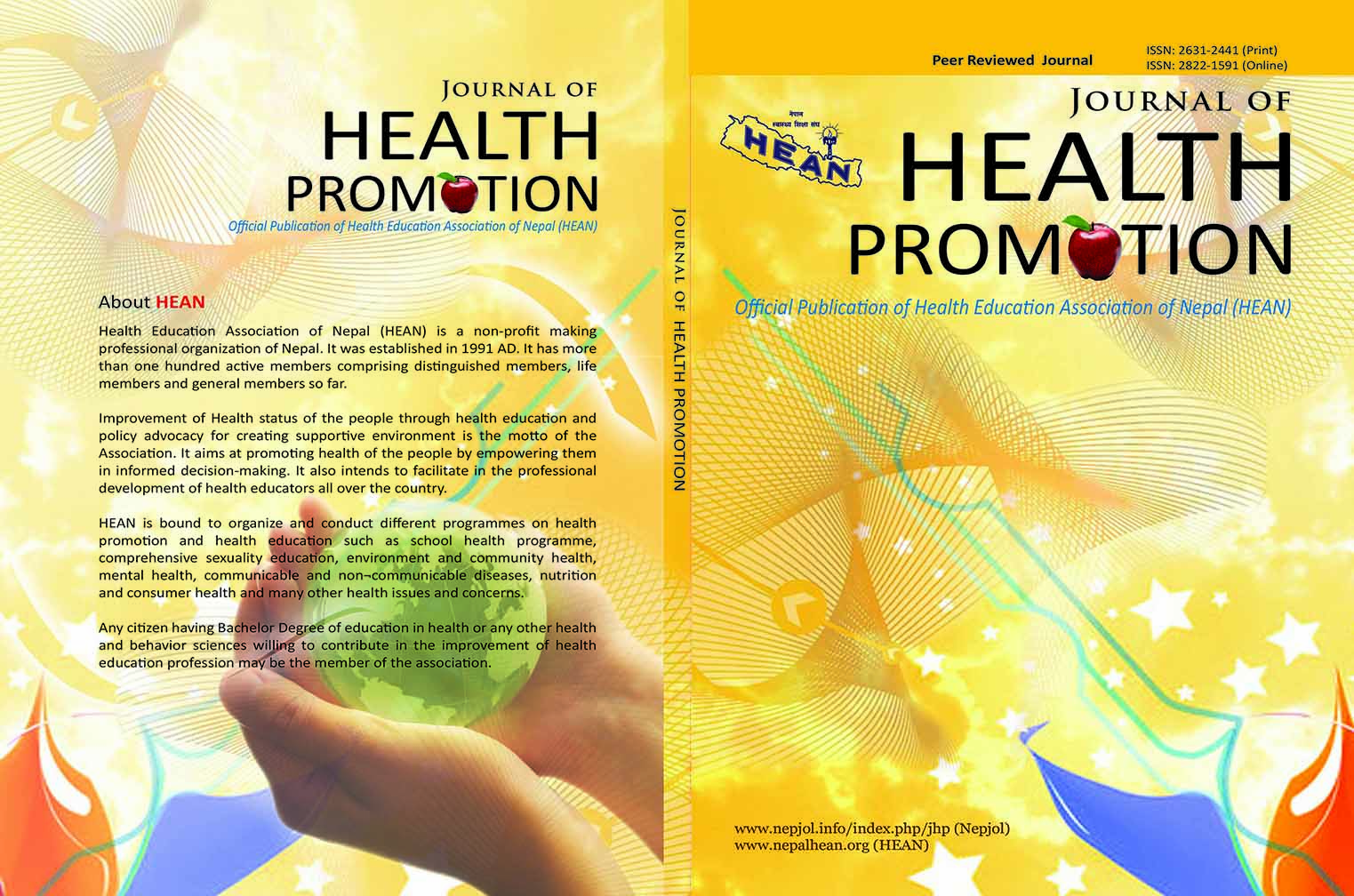Problems and Practice of Management on Menstruation by Adolescents Girls of Basic Schools of Chitwan, Nepal
DOI:
https://doi.org/10.3126/jhp.v8i0.32988Keywords:
Adolescents, menstruation hygiene management, SchoolAbstract
Managing menstruation in a hygienic way is a challenge in most of the low and middle-income countries (LMIC) including Nepal, where normal and natural physiological process of menstruation is considered as girls’ problem which is viewed as sinful, unholy and matter of shame. This paper explores the current practice and existing difficulties that adolescents girls encounter hygienic management of menstruation (MHM) especially during school days. The study was conducted on five purposively selected community schools of Chitwan district. The study adopted Participatory Action Research (PAR) as an approach, that is encapsulated with mixed method research design. For qualitative information observation, focus group discussions (FGD) and field notes were used, whereas for quantitative data self-administrative questionnaires were used. Quantitative information was collected from 205 girls students who were present at schools on the day of data collection. The finding shows that majority of the girls (93.7%) who encounter hygienic management of menstruation were of 10-14 years old age, whereas nearly one third of them were (29%) from grade eight. Similarly, among the total 205 girls, only 79 girls have already started their menstruation; among those who have started menstruation majority (78%) had heard about menstruation form their mothers. Likewise, 35% girls used homemade cotton pads and 40.5% of them changed pad three times a day. During FGD, adolescents girls shared that lack of water and soap in toilets, stress and lack of concentration during menstruation are the major difficulties which they encounter during days of menstruation. They suggested the concerned authorities to manage pad bank, make soap and water available, and develop skills for proper disposing of used sanitary pads for MHM at schools.
Downloads
Downloads
Published
How to Cite
Issue
Section
License
© Health Education Association of Nepal (HEAN)
Authors are required to transfer their copyright to the Health Education Association of Nepal (HEAN).
The materials of this publication may be reproduced, reviewed and translated, acknowledging the source "Journal of Health Promotion".




